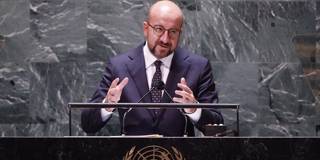
Five Visions for a New International Order
The shift in global power to new (and more) actors has made the need to reform global institutions increasingly obvious. At last month's UN General Assembly meeting, world leaders advanced distinct approaches to the international order and its future.
MADRID – The post-World War II global institutional order is obsolete. This is not a recent development: the need for reform has been apparent for a long time. And yet, the necessary transformation is more comprehensive than many realize and more urgent than ever.